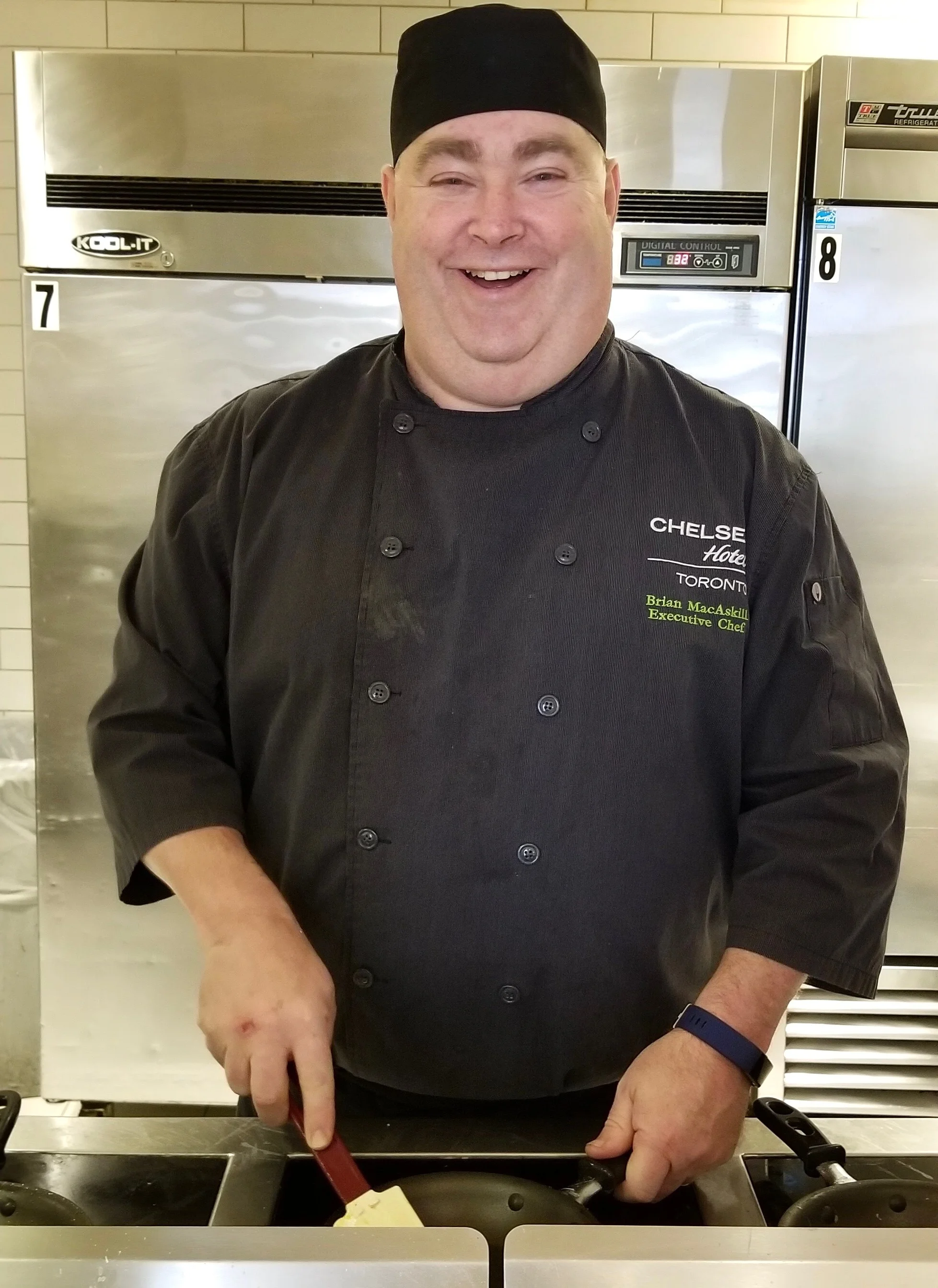KEEPING UP WITH SUSTAINABILITY : Inside the Kitchen of Canada’s Largest Hotel
With 1,590 guest rooms, Chelsea Hotel, Toronto is Canada’s largest hotel. A hotel of this magnitude requires a multifaceted approach to teamwork, involving leaders in all areas, especially in the kitchen. In addition to the hotel’s three separate dining options and large banquet/catering capabilities, the hotel works hard to keep up with sustainability.
Executive Chef, Brian MacAskill, goes above and beyond with his menu planning and best practices, to keep his kitchen as sustainable as possible. MacAskill understands the impact that honest, fresh ingredients can have on the environment and on the palate, and has been active in promoting the use of local foods during his career.
During one of the busiest times of the year (tour season) at the hotel, Market Garden, the culinary hub serves (on average) up to 800 breakfasts in 4 hours/day, that’s over 20,000 breakfasts a month! During these peak periods, the kitchen will go through 1000lbs of eggs a week and 100lbs of bacon a day.
MacAskill strives to bring his values into his kitchen and to maintain a bond to Canadian farmers as best as he can, but this is not an easy task on such a large scale. While he tries to incorporate as many local products into his menus, it poses as a challenge to keep all ingredients “local” in the way people envision “local” to be.
He describes the hotel’s version of local to be “industrial local”. Meaning, local, Canadian ingredients are still being used responsibly, they are just not hand picked; in fact, it can be argued that industrial local makes a larger impact because of the quantity consumed. At the hotel the essentials are always Canada’s best: the butter, milk, canola oil and eggs, to name a few. It takes great skill and knowledge to keep such a large kitchen sustainable. MacAskill prides himself in his ability to source local ingredients and when given the task of preparing a unique menu for a special event, these abilities truly shine.
Now, that’s not to say the local connection is non-existent. MacAskill works hard at building personal connections with Canadian farmers, some examples of fostered relationships and products used are:
Canola oil from Guelph, Ontario – Pristine Gourmet
Vinegar from Niagara, Ontario – Niagara Vinegar Co.
Cheese from Toronto, Ontario – International Cheese Co.
Mustard from Toronto, Ontario - Kozlik’s Canadian Mustard
Sustainability is about finding ways of providing food that will support future generations and have less of an impact on the environment, a journey that the hotel strives to improve year over year.
Some additional ways the kitchen works to improve their sustainability and environmental footprint are:
Composting - during the food preparation, all food scraps go into green bins to be composted. When plates come back from functions; food, garbage and recyclables get separated.
Oil disposal - all stewards have training on proper use of chemicals to avoid water contamination; oil is never poured down drains. Wardlaw’s Poultry Farm picks up oil waste to dispose of it properly.
For more information on the dining options at Chelsea Hotel, Toronto visit them here.

